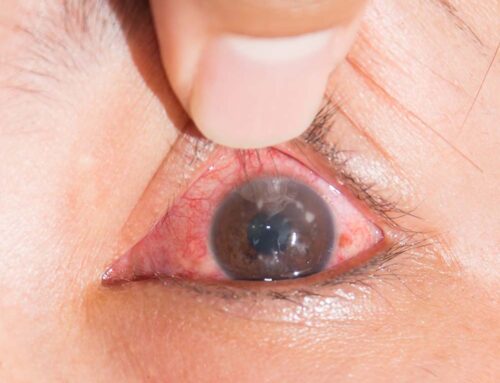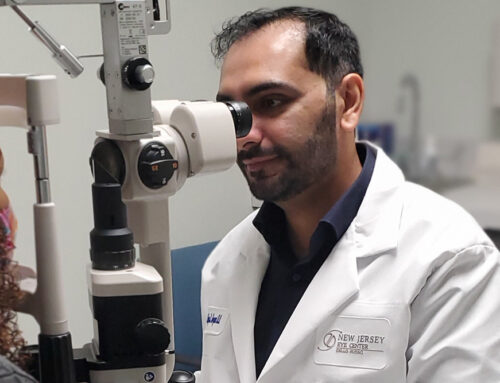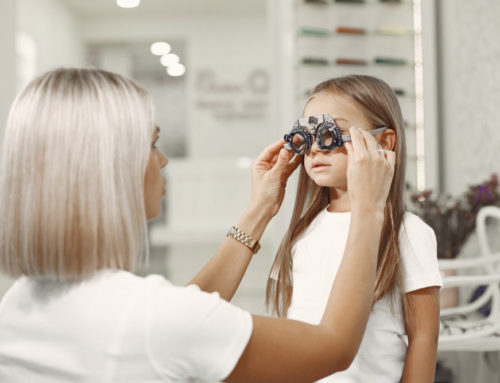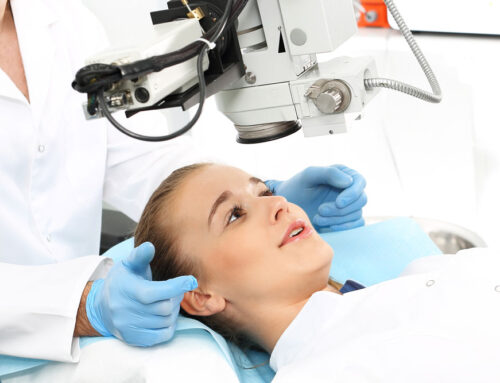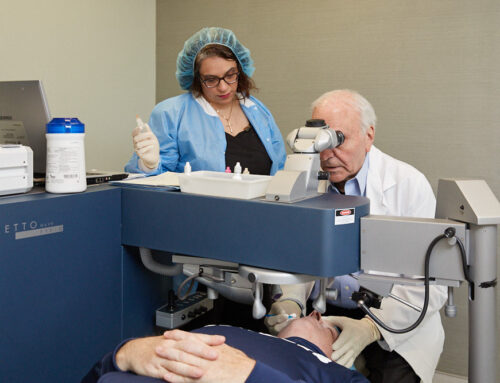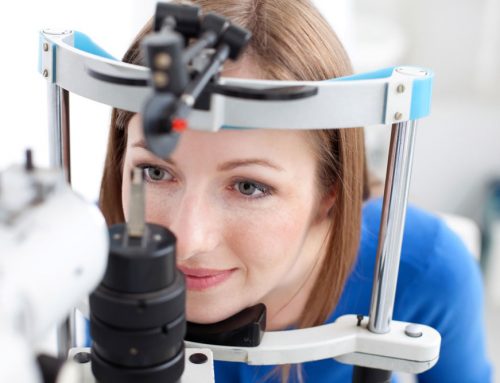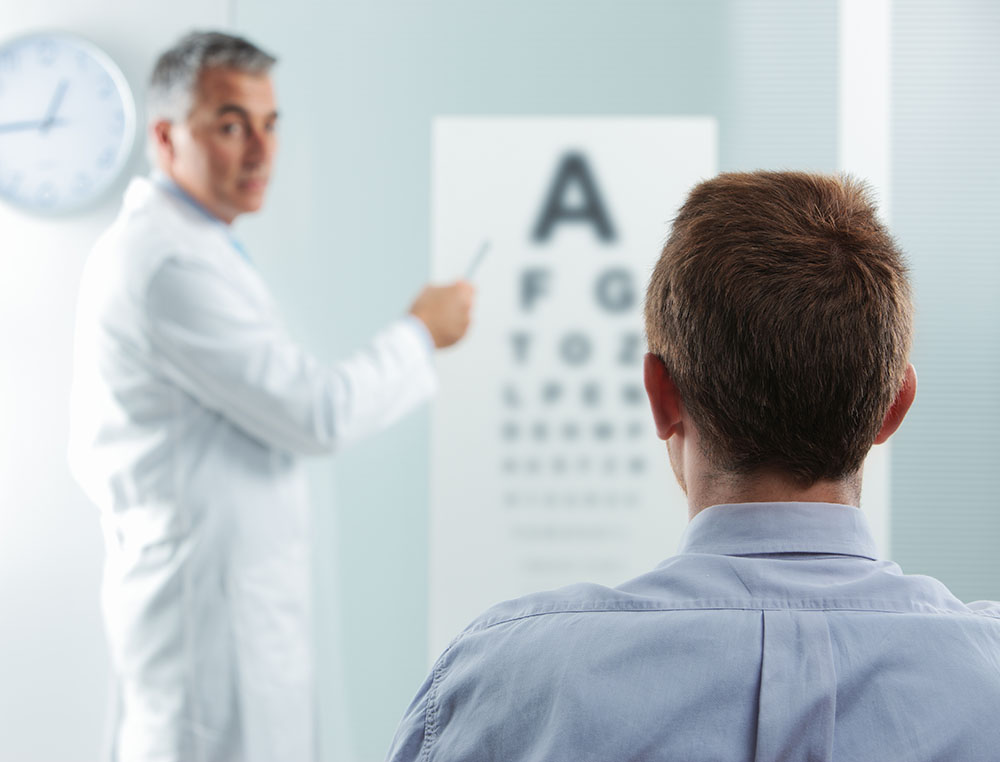
Regular eye exams are an important part of a healthy lifestyle and shouldn’t be overlooked. Our eyes are just as important as our teeth, our skin, and any other part of our body.
Checking up regularly on our eyes can prevent many health problems. Since the eyes are such sensitive organs it is essential that proper care and provisions are made when taking care of them.
Below are some of the frequently asked questions about regular eye exams which we hear from our patients.
What can an eye test detect?
Eye tests can detect several things depending on the method used when it comes to examination.
There are different methods for measuring the thickness of the cornea, visual peripherals, visual acuity, etc. Eye tests can detect whether you are at risk for infections, diseases, temporary or permanent blindness, color or vision loss and a plethora of other things.
How often should I have regular eye exams?
Regular eye exams are recommended to be scheduled once every 2 years. However, depending on medical circumstances these exams can be taken more than once within this period.
For example, if you have a family history of eye diseases and/or conditions, a regular eye exam should be schedules once a year.
Why do I need regular eye exams?
The main benefit of eye exams is the prevention of any sight-related diseases that are present or undetectable. Although, unknown to most, a person’s eye tests can also detect diseases that are not specifically linked to the eyes themselves.
Some examples of these diseases include:
- Tumor growths
- Diabetes
- Skin cancer
- Hypertension
- Graves’ disease
How do I know if I need an eye exam?
There are a few tell-tale signs that will indicate if you need a regular eye exam. However, it is very important that you do not wait for these signs to schedule your eye test. Instead, be proactive and make regular appointments.
If you are experiencing the following symptoms then it may be time for an eye exam.
- Blurred vision
- Failure to see clearly out of both eyes (Loss of binocular vision)
- Loss of peripheral sight
- Dry eyes
- Unexplained migraines
- Red or irritated eyes
- Constant drainage from tear ducts
- Bleeding from the eyes
Do kids need a regular eye exam?
Children are required to get eye exams due to their developing eyesight. It is also important that a child develops their basic visual skills. These include: distance evaluation, eye movement, hand-eye coordination, and the ability to focus on certain objects.
Eye exams can train these aspects of the eyes while evaluating their condition. Since a child’s eyesight is sensitive to varying factors, detection of eye complications early on can prevent a permanent vision loss.
At what age should children have regular eye tests?
Children should be scheduled for a regular eye exam early on in their lives. In fact, a child’s first comprehensive eye exam should be performed as early as 6 months of age.
This first exam detects any underlying problems in the infant’s eyes. And its main purpose is to ensure optimum continual development.
Following up from the first exam the second regular eye exam is conducted at the age of 3. The purpose of this second exam is to further examine vision. At this point an eye specialist will decide if children require ocular assistance, such as eye glasses or contacts lenses, before entering kindergarten.
The third regular eye exam for children is done at the age of 5 or 6 years old. This is usually about the time they are entering first grade.
After these three mandatory appointments, a regular eye exam should be scheduled at least every 2 years. Children who wear eyeglasses or contact lenses are recommended to see their eye doctor once a year, or as per requested.
What kind of eye test do I need?
There are two kinds of regular eye exams, these are called comprehensive and basic. Depending on your visual circumstances, it is important to know which of these will be more effective for you personally. Each one of these tests serve separate purposes. Let’s take a look at each now:
Basic eye exams
A basic regular eye exam, while capable of detecting vision problems, cannot specifically provide an accurate diagnosis of an eye disease. However, a visual exam can be used as a reference point to go and see your eye doctor for the more detailed comprehensive exam.
During a basic exam, three key functions of eye sight are tested: visual acuity and refraction, binocular vision, and overall eye health. These exams are often the ones that can determine if you require glasses or contacts, as well as provide the accurate prescription for these.
Comprehensive eye exams
Comprehensive eye exams, as the name suggests, are a complete analysis of your visual capabilities. There are five main components that make up a comprehensive eye exam. These are:
- Visual field testing – Peripheral vision.
- Visual acuity testing – Used for testing the ability of an individual to determine distances.
- Standard eye health evaluation – Tests things such as fluid pressure, the internal structure of the eye, the retina, nerves, and iris health.
- History of vision – A questionnaire regarding past eye complications and eye exams.
- Health and medical history – A questionnaire concerning the list of medications you’ve taken and past health problems.
The purpose of a comprehensive regular eye exam is to scope out a wide range of eye diseases. Since it evaluates a wide range of factors in and around the eye, its better suited for diagnosing symptoms that can be a result of defective eyes or eyesight.
Don’t be afraid of your eye doctor
If you have anxiety about seeing your eye doctor in person, consider contacting them by other means first and providing the details of your situation. Although the idea of someone near our eyes can be off putting, it is important to remember that your eye doctor has seen hundreds if not thousands of patients.
If you have any questions about scheduling a regular eye exam or about eye health in general, please get in touch with us.
Regular eye exams are meant to benefit your visual health in the long run, so don’t let your fears and worries get the best of you.


